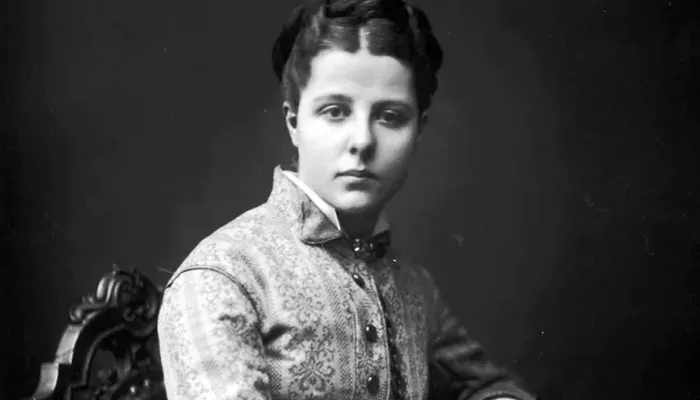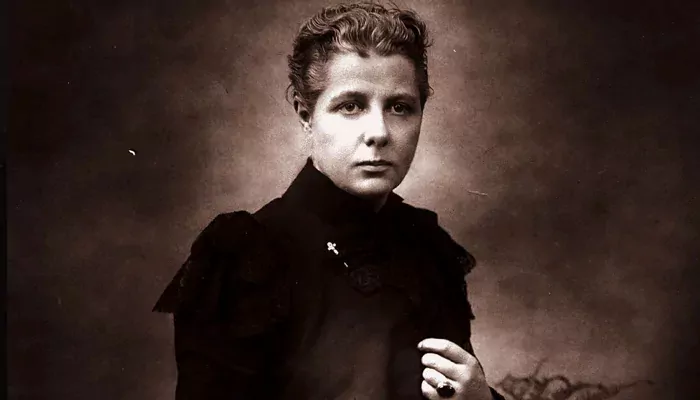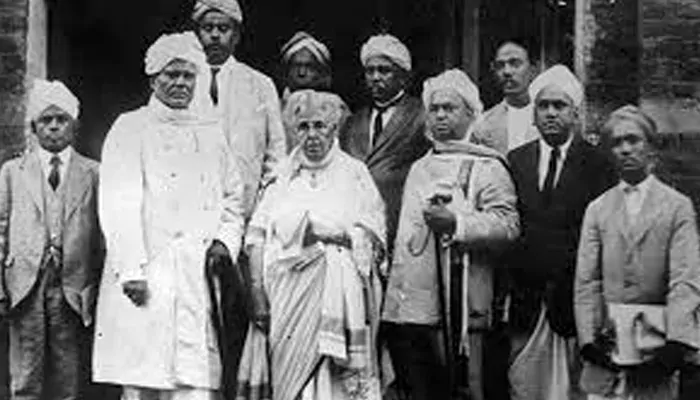
She questioned dogma, championed education, and stood shoulder to shoulder with India’s freedom fighters
Annie Besant’s life was anything but ordinary. Born in London in 1847, she began her journey as a devout Christian, only to later become a fierce rationalist and critic of religion. But her story didn’t stop there. In her forties, Besant found herself drawn to India—not just as a land of ancient wisdom, but as a place where she could merge faith with reform, and spirituality with science. Her transformation from a British freethinker to an Indian nationalist and Theosophist is one of the most remarkable sagas of cross-cultural evolution.
In Victorian England, Besant made waves as a radical. She fought for workers’ rights, birth control, and secular education. Her speeches questioned religious dogma, and her writings—especially in The Freethinker’s Textbook—pushed back against blind belief. Yet, despite her sharp rational mind, she never stopped seeking a deeper spiritual meaning.
That search brought her to Theosophy—a movement that believed in the universal truths at the heart of all religions. Besant joined the Theosophical Society in 1889. By 1893, she had arrived in India. The spiritual, philosophical depth of Hinduism captivated her. She didn't just admire it from afar—she immersed herself fully.

Annie Besant stood firmly against the view that Hinduism was outdated or superstitious. She saw its scriptures and philosophies as profound, scientific, and logical. However, she was also critical of its rigid social customs, such as particularly blind rituals and untouchability. To her, religion had to be lived, questioned, and understood, not blindly followed.
She urged Indians to rediscover the rational core of their own faith. “The ancient wisdom of the East,” she often said, “holds truths that the modern world has forgotten.”
Besant believed that the real revolution would come through education. She saw knowledge as the antidote to superstition and subjugation. In 1898, she founded the Central Hindu College in Varanasi, a space where students learned both modern science and classical Indian thought. This institution later became part of Banaras Hindu University.
She also promoted women’s education, a radical idea at the time. Besant believed that without educating women, India could never achieve true progress. Her schools nurtured young minds to think independently, blending cultural pride with critical thought.

Although British by birth, Annie Besant emerged as a vocal and fearless advocate for Indian self-rule. In 1916, she launched the All India Home Rule League, inspired by Ireland’s similar struggle for autonomy. Her movement drew support from leaders across political lines—from moderates like Gopal Krishna Gokhale to emerging voices like Jawaharlal Nehru.
Besant’s arrest in 1917 by the British sparked public outrage across India. The protests were so widespread that the colonial government was forced to release her. Soon after, she made history by becoming the first woman to serve as president of the Indian National Congress.
Annie Besant’s contributions spanned politics, religion, education, and social reform. She translated Hindu scriptures, wrote books on yoga, and introduced the Bhagavad Gita to Western audiences. At the same time, she kept alive a modern, inclusive vision of Hinduism—free of dogma and open to reason.
She wasn’t without critics. Some found her too conservative on issues like caste and gender. But no one could deny her influence. She made Indians believe that their heritage wasn’t just worth preserving—it was worth fighting for.